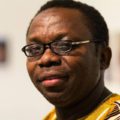Africa
Remembering Victims of Witch Hunts in Niger State -By Leo Igwe
As human beings, we have a duty to uphold the rule of law and human rights in communities. We have a duty to defend the humanity of alleged witches and foster human nourishment and flourishing. I wish you all the best at this event and look forward to the outcome of your deliberations, especially some actionable steps and recommendations on how to combat abuses linked to witchcraft beliefs and ritual attacks in Niger state.

Greetings to all attending the first event of the Advocacy for Alleged Witches in Niger State, titled Witchcraft accusations and human rights abuse of women and children in Niger state. I salute the Mixed Observers Team for co-hosting and cofacilitating this meeting. AfAW works and campaigns to end witch hunting in Africa. And to realize this goal, we believe organisations must cooperate and synergize. No one organisation can do this alone. This forum is convened to mark this year’s World Day Against Witch Hunts. The Advocacy for Alleged Witches has been deeply concerned about the witch-hunting situation in Niger state. AfAW has intervened in some cases of witchcraft accusations, especially the witch-hunting campaign by one Hassan Patigi. We are happy that the government prevailed on him and his witch hunting activities. However, witch hunting rages across the state.
This meeting is convened to explore how we can do more and do better in ending witch hunts in Niger state and in Nigeria as a whole. The International Day against Witch hunts is marked on August 10 every year to highlight abuses and injustices that accused persons suffered in the past and still suffer today in many parts of the globe. Some of the accused persons are from Niger state and many of the abuses take place in Niger state, in Lapai, Mokwa, Bida, etc.
For this year, we have chosen to remember victims and survivors of witch hunts and ritual attacks. We decided to honour all who have been violated in the name of witchcraft or ritual belief because they deserve to be honoured. They are victims of miscarriage of justice and superstition-based infringements. So I ask you: do you know someone who has been accused or abused for witchcraft? Can you recall, while growing up, anybody who has been mischaracterised, identified, tried, and tortured as a witch? Let us pause for a moment to honour, respect, and remember these innocent persons, these victims, known, unknown, or forgotten. Their pain is our pain. Their suffering is our suffering because they became victims due to our mistaken ideas of nature and how nature works.
Let us pause and recall the trauma these victims endured, sometimes in the hands of their relatives, and community members, people they trusted and entrusted with their life, safety, and well-being. Let us remember the sense of betrayal that those men and women, young and old, able and disabled, felt for being falsely accused. Let us not forget their feeling of incomprehension and disappointment for the accusation of making sick those they never made sick, for injuring or murdering those they could barely harm, for causing accidents, infertility, or other misfortunes that they knew little or nothing about. Let us recall the pain of being tortured and made to confess and admit to doing what they never did.
For a moment, I ask you to put yourself in the shoes of these victims, because you could be in those shoes someday. In a society like ours, nobody is free or immune from accusations. Everybody is a potential victim. Everyone risks being accused. Imagine being accused of what you never did and being attacked and tortured as a result of that. Imagine seeing your relatives and community turn against you, beat and torture you, stone or machete you to death for something you knew nothing about. Imagine the feeling of injury, pain, and loss experienced by victims and their relatives.
One of such victims is Ya Kakasha from Mokwa. Ya Kakasha passed away some weeks ago. She was a survivor of witch hunts. Ya Kakasha was a child, a daughter, a mother, a grandmother, and a sister. She was accused and tortured by her own son and other relatives. She suffered humiliation and dehumanization and went to the grave with trauma, wounds, and scars from the horrific experience.
To honour her memory and that of other innocent men and women from Niger state who have suffered similar or worse fate, we must say never again, never again to witch hunts. We commit to ending witch hunts in Niger state, right here and right now. We must become advocates for alleged witches and be ready to protect and defend the accused. This advocacy is important because the law is on the side of the accused. Witchcraft accusation is an exercise in criminality. Section 210 of the criminal code act as amended prohibits witchcraft accusation. Trial by ordeal and jungle justice are against the law. Witch hunting is a violation of human rights. As human beings, we have a duty to uphold the rule of law and human rights in communities. We have a duty to defend the humanity of alleged witches and foster human nourishment and flourishing. I wish you all the best at this event and look forward to the outcome of your deliberations, especially some actionable steps and recommendations on how to combat abuses linked to witchcraft beliefs and ritual attacks in Niger state.
Leo Igwe directs the Advocacy for Alleged Witches

























